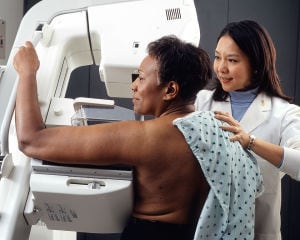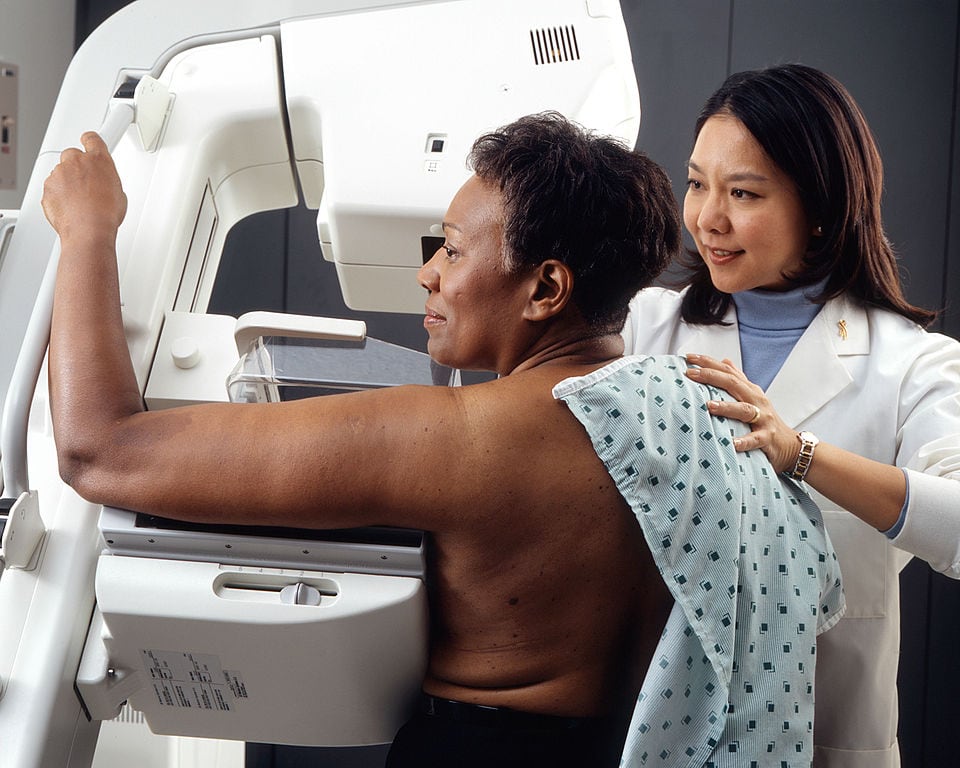
Mammography and other forms of early breast cancer detection, such as self-exams and regular check-ups, are still important for black women. (Rhoda Baer/NIH-Public Domain)
Many women’s health experts were surprised by the results of a large Canadian study reporting that mammography does not lower death rates from breast cancer.
Mammography and other forms of early breast cancer detection, such as self-exams and regular check-ups, are considered critically important for black women because we are more likely to die from breast cancer than any other group of women.
So how should we react to the new study’s findings?
Proceed with caution. It’s too soon to give up your annual mammogram, and it’s not clear how many black women were included in the research, which was led by Anthony B. Miller, M.D., at the University of Toronto’s Dalla Lana School of Public Health and published on Feb.10.
Consider the Source
Culture makes a tremendous difference in how health care is delivered and how the health statistics used in a study like Miller’s are gathered. The Canadian study was a 25-year trial that followed nearly 90,000 women ages 40 to 59 who live in one of 15 Canadian provinces. But the researchers did not report how many black Canadian women participated in the study.
The number is likely to be quite small because blacks make up 13.1 percent of the United States population, but blacks are only 2.5 percent of the Canadian population. In addition, “few statistics exist with respect to the health status and trends of black women in Canada,” according to the report, “Black Women in Canada Resource,” published by the Voices Project in Nova Scotia.
The characteristics of breast cancer — how fast it advances, how well it responds to treatments, how early it is diagnosed and whether it can be cured — also vary from one race of women to the next. Black women are not only more likely to have an aggressive type of breast cancer, but we also tend to be diagnosed with late-stage breast cancer, according to the Black Women’s Health Study.
We are often diagnosed with an advanced stage of cancer because black women have less access to quality health care for reasons that are very specific to the United States, such as insurance co-pays and the general cost of health care. Canada has universal health care, so black Canadian women may have much better access to affordable health care.
The bottom line: More research needs to be done that considers the specific health needs and interests of black women when it comes to breast cancer before we can consider giving up on mammography.








